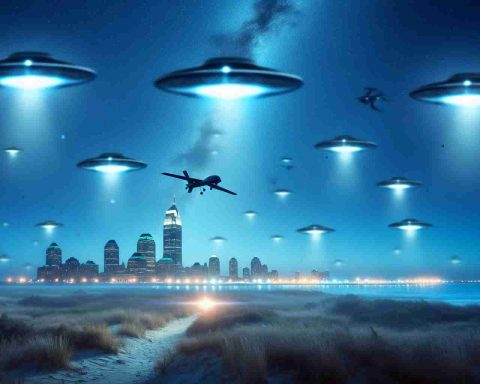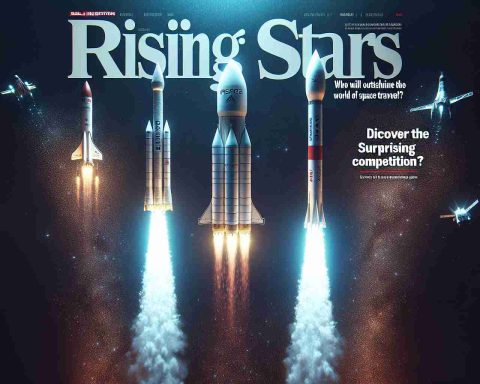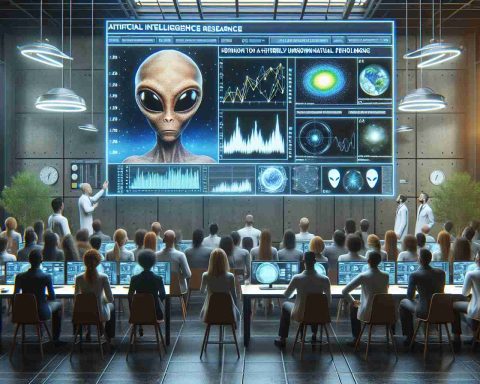Jimmy Carter’s Unusual Campaign Moment in 1976
In the spring of 1976, during his quest for the Democratic presidential nomination, Georgia Governor Jimmy Carter made headlines in unexpected ways in Wisconsin. He secured a narrow victory against Congressman Mo Udall in a state primary, which was so close it led to some confusion in the media regarding the results.
But Carter didn’t stop there; he created a buzz at a news conference when he boldly stated his intention to disclose all information related to UFOs if he were elected. This unorthodox pledge was surprising, especially during such a crucial moment in his campaign.
Wisconsin, home to a notable community of UFO enthusiasts and the publisher of the long-running magazine Flying Saucers, might have found hope in Carter’s declaration. His previous UFO sighting in 1969, alongside numerous witnesses, fortified his credibility on the subject matter. Describing the incident as “the darndest thing I’ve ever seen,” Carter’s firsthand experience lent weight to his promise to unveil government secrets.
However, once in office, the reality of protecting national security took precedence. Carter admitted that releasing UFO information would pose “defense implications” for the country, effectively abandoning his earlier commitment.
Despite this, Carter’s legacy encompasses much more than the paranormal. His passionate advocacy for peace and humanity remains his definitive story. Ultimately, his brief foray into UFO discussion highlights an intriguing yet fleeting aspect of his journey from a humble peanut farmer to the presidency.
The Broader Implications of Jimmy Carter’s UFO Pledge
Jimmy Carter’s 1976 campaign moment, tied to his promise to disclose UFO information, resonates beyond mere political spectacle. This unusual commitment reflected a profound societal curiosity about government transparency and public trust. In an era marked by skepticism towards authority, particularly following the Watergate scandal, Carter’s openness on such an unconventional topic resonated with many voters who sought authenticity.
Culturally, the promise tapped into a burgeoning fascination with UFOs and extraterrestrial life, which has persisted over the decades. This intrigue has become intertwined with popular culture, influencing films, literature, and an industry of conspiracy theories. Carter’s acknowledgment of UFOs may have inadvertently fostered dialogue around the search for truth, emphasizing the intersection of governance and belief.
The global implications are significant as well. With increasing investments in space exploration and astrobiology, nations now grapple with the consequences of contact with other life forms. Carter’s initial stance on UFO transparency could be viewed through the lens of ongoing discussions about inter-departmental secrecy and the ethical obligations of states to their citizens.
Moreover, the long-term significance of this pledge opens up considerations regarding environmental stewardship. As humanity ventures further into space, the quest for knowledge may lead to unforeseen ecological challenges on our planet, pushing society to reconsider its relationship with both terrestrial and celestial ecosystems.
In this evolving narrative, Carter’s brief encounter with UFO discourse highlights an enduring human quest for understanding, trust, and interconnection within a complex global narrative.
Uncovering the Legacy of Jimmy Carter: From UFOs to Humanitarian Efforts
The Impact of Jimmy Carter’s 1976 Campaign and Unique Promises
In 1976, as he sought the Democratic presidential nomination, Jimmy Carter carved a distinct path in American politics with a memorable campaign moment in Wisconsin. His surprising promise to disclose all information related to unidentified flying objects (UFOs) captured the nation’s attention and sparked discussions that intersected politics with one of America’s enduring fascinations: the unknown.
Unconventional Promises Spark Public Interest
The unexpected UFO pledge emerged following a narrow primary victory over Congressman Mo Udall, where media confusion around election results only fueled interest in Carter’s campaign. Wisconsin, particularly vibrant with UFO enthusiasts and home to the long-standing magazine Flying Saucers, provided a receptive audience for Carter’s statement. His own UFO sighting in 1969, shared with numerous witnesses, added credibility to his daring promise. Carter recounted this experience as “the darndest thing I’ve ever seen,” helping to position him as a candidate willing to explore unconventional topics.
The Promise vs. Reality of Office
However, once elected, Carter faced the realpolitik of national security concerns. He acknowledged that releasing detailed UFO information could have significant defense implications, leading him to step back from his earlier commitment. This pivotal decision reflects the complex balance public officials must navigate between promises made during campaigns and the responsibilities they assume while in office.
Key Aspects of Carter’s Presidency
Carter’s legacy transcends his short-lived spotlight on UFOs. His presidency is defined by notable humanitarian efforts and a unique approach to foreign policy. Here are some essential aspects of his tenure:
– Human Rights Advocacy: Carter is widely recognized for prioritizing human rights in foreign policy, emphasizing moral responsibility.
– Camp David Accords: His role in brokering peace between Israel and Egypt marked a significant achievement in Middle Eastern diplomacy.
– Sustainable Policies: Carter was ahead of his time in advocating for environmental sustainability, including his efforts to promote renewable energy sources.
Trends in Political Campaigns
Carter’s campaign highlights broader trends in American political history, including the increasing importance of personal narratives and unorthodox candidate promises in engaging voters. This shift reflects a changing dynamic where voters are drawn to authenticity and distinctive stances, often leading to unconventional conversations that may shape political dialogue.
Conclusion: The Multifaceted Legacy of Jimmy Carter
While the promise to reveal UFO information became a footnote in the political arena, it offers insight into Carter’s character and the complexities of political leadership. His ability to capture public imagination while managing the weight of office responsibilities showcases the intricacies of governance where the fantastical meets pragmatic politics.
To learn more about the impact of Jimmy Carter and other political figures, you can check out History.com for detailed insights on their influences and legacies.




















